a wonderful place to recover and to get your life back on track, if you or a loved one is looking to recover from drug addiction or alcoholism this is the place to do it. it is in a remote area and the scenic area is a wonderful thing to be around
About Harmony Ridge Recovery Center
This facility takes a wholesome approach to healing your mind, body, and spirit. Yoga and meditation both help increase self-awareness, provide emotional stability, and reduce stress. The physical benefits include joint and muscle pain relief along with providing more flexibility as well as improving your cardio health. Another benefit to doing yoga is being able to do it on your own as well as in a group.
Their art therapy offers many options for finding a medium you may be interested in and use to creatively express yourself or help manage emotions and create a healthier lifestyle. Art therapy can be sculpting, drawing, painting, dancing, poetry, collageing, and playing music.
These activities can improve mental health by causing the release of dopamine (happy chemicals in the brain) from something other than substance use. This can retrain your brain to seek healthier activities for reward rather than drugs or alcohol.
Facility Overview
Latest Reviews
Rehab Score
Gallery
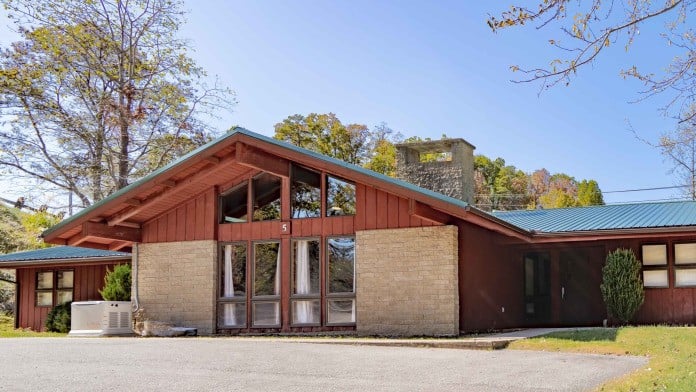
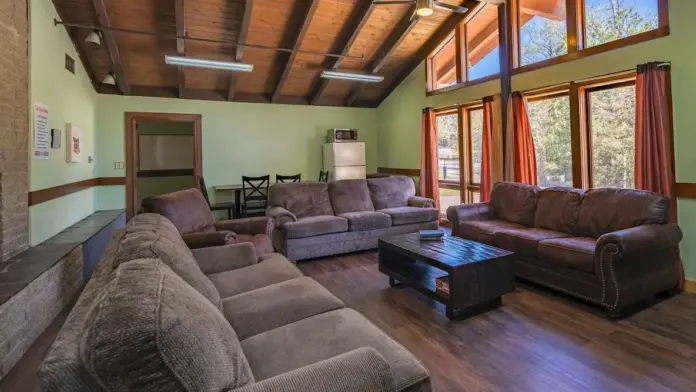
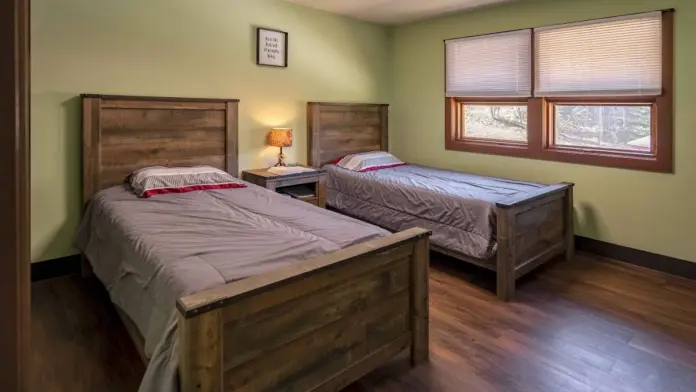
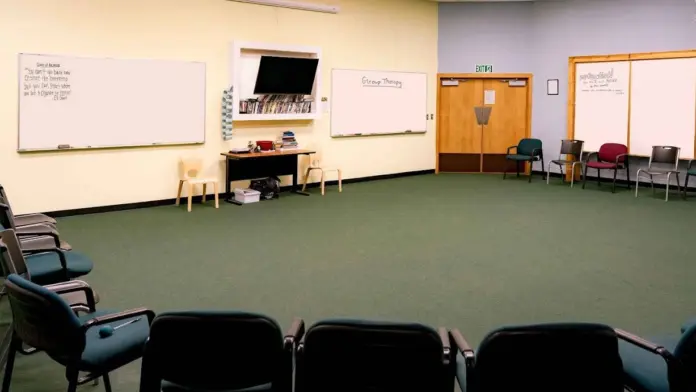
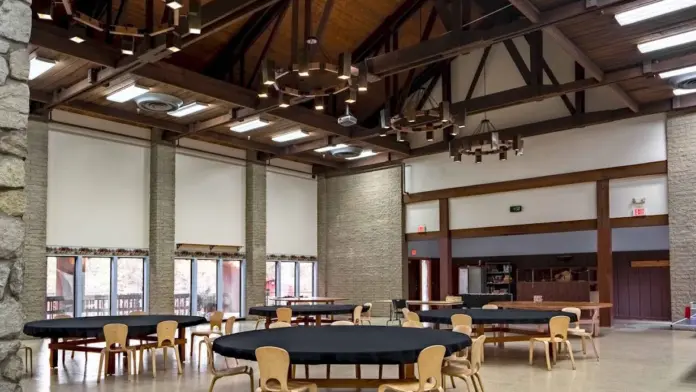
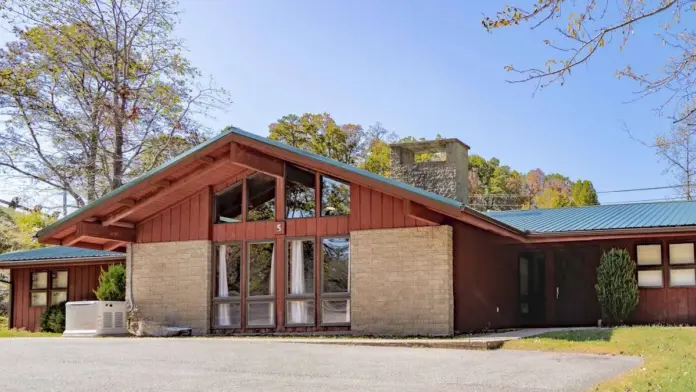
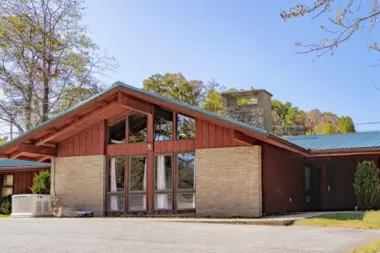
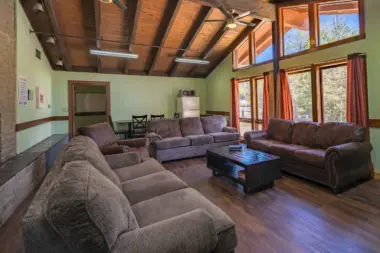
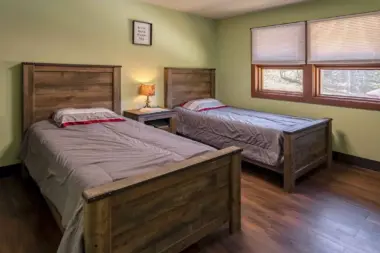
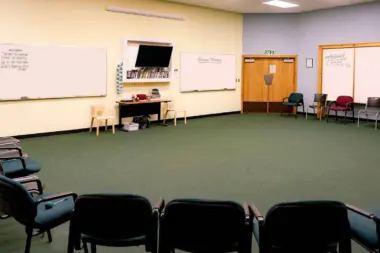
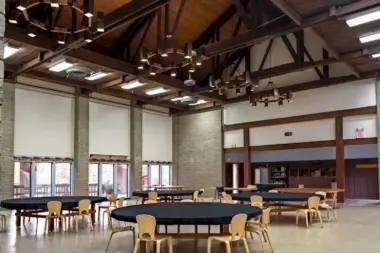
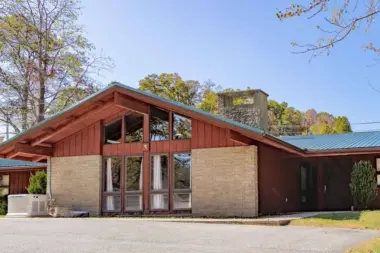
Accepted Insurance

Other Forms of Payment
Private insurance refers to any kind of healthcare coverage that isn't from the state or federal government. This includes individual and family plans offered by an employer or purchased from the Insurance Marketplace. Every plan will have different requirements and out of pocket costs so be sure to get the full details before you start treatment.
Self-pay involves paying for treatment out of your own pocket. You can use savings or credit, get a personal loan, or receive help from family and friends to fund your treatment. If you don't have insurance or your insurance plan doesn't cover a specific program, self-pay can help ensure you still get the care you need.
Medicaid is a state based program that helps lower-income individuals and families pay for healthcare. Medicaid covers addiction treatment so those enrolled can use their coverage to pay for rehab. When a program accepts Medicaid the client often pays very little or nothing out of their own pocket.
Military members, veterans, and eligible dependents have access to specific insurance programs that help them get the care they need. TRICARE and VA insurance can help you access low cost or no cost addiction and mental health treatment. Programs that accept military insurance often have targeted treatment focused on the unique challenges military members, veterans, and their families face.
Addiction Treatments
Levels of Care
Residential treatment programs are those that offer housing and meals in addition to substance abuse treatment. Rehab facilities that offer residential treatment allow patients to focus solely on recovery, in an environment totally separate from their lives. Some rehab centers specialize in short-term residential treatment (a few days to a week or two), while others solely provide treatment on a long-term basis (several weeks to months). Some offer both, and tailor treatment to the patient's individual requirements.
Intensive Outpatient Programs (IOP) are for those who want or need a very structured treatment program but who also wish to live at home and continue with certain responsibilities (such as work or school). IOP substance abuse treatment programs vary in duration and intensity, and certain outpatient rehab centers will offer individualized treatment programs.
Clients who are leaving detox or intensive inpatient care often transition into a rehab aftercare program. Outpatient treatment is among the most common rehab aftercare services, but clients often continue to receive support long after being discharged from formal treatment. Clients' long-term care plans are highly individualized and designed to evolve with the clients' changing needs. Case managers and care teams typically work with the client to design their unique care strategy.
Designed as an intensive form of outpatient, a partial hospitalization program (PHP) allows clients to receive treatment at a rehab facility while continuing to live at home. PHP treatment typically offers daily 6-8 hour meetings, 5 days a week for an average of 90 days. Commuting is typically required, however, some PHP treatments can take place via telehealth. PHP treatment may be fully or partially covered by providers. Depending on your needs, typical PHP treatment can include relapse prevention, medication management, and behavioral therapy services.
Drug and alcohol addiction often takes a heavy toll on one's body. Over time, a physical dependence can develop, meaning the body physiologically needs the substance to function. Detox is the process of removing drugs and/or alcohol from the body, a process that can be lethal if mismanaged. Medical detox is done by licensed medical professionals who monitor vital signs and keep you safe, healthy, and as comfortable as possible as you go through detox and withdrawal.
Treatments
The goal of treatment for alcoholism is abstinence. Those with poor social support, poor motivation, or psychiatric disorders tend to relapse within a few years of treatment. For these people, success is measured by longer periods of abstinence, reduced use of alcohol, better health, and improved social functioning. Recovery and Maintenance are usually based on 12 step programs and AA meetings.
Drug addiction causes psychological and physical damage through repeated and uncontrollable use of substances. Drug rehab in West Virginia focuses on providing a full continuum of care, from detox to aftercare, and treatment can take place in outpatient or inpatient settings, based on your needs.
A combined mental health and substance abuse rehab has the staff and resources available to handle individuals with both mental health and substance abuse issues. It can be challenging to determine where a specific symptom stems from (a mental health issue or an issue related to substance abuse), so mental health and substance abuse professionals are helpful in detangling symptoms and keeping treatment on track.
Opioid rehabs specialize in supporting those recovering from opioid addiction. They treat those suffering from addiction to illegal opioids like heroin, as well as prescription drugs like oxycodone. These centers typically combine both physical as well as mental and emotional support to help stop addiction. Physical support often includes medical detox and subsequent medical support (including medication), and mental support includes in-depth therapy to address the underlying causes of addiction.
In West Virginia, individuals seeking substance abuse treatment can access comprehensive rehab programs. Through a combination of individualized treatment planning and evidence-based therapies, you'll receive the treatment you need to overcome addiction and maintain your recovery long-term. You can also expect individual and group therapy, skills training, and personalized care to give you all the support you need to maintain your recovery after treatment.
In West Virginia, dual-diagnosis addiction treatment programs provide specialized care for individuals with co-occurring substance use disorders and mental health conditions. These programs offer a full continuum of care, including detox, outpatient, inpatient, intensive outpatient, and partial hospitalization options. Treatment includes individual and group therapy, medication management, experiential therapy, skills training, and relational counseling.
Programs
Young adulthood can be an exciting, yet difficult, time of transition. Individuals in their late teens to mid-20s face unique stressors related to school, jobs, families, and social circles, which can lead to a rise in substance use. Rehab centers with dedicated young adult programs will include activities and amenities that cater to this age group, with an emphasis on specialized counseling, peer socialization, and ongoing aftercare.
Clinical Services
Cognitive Behavioral Therapy (CBT) is a therapy modality that focuses on the relationship between one's thoughts, feelings, and behaviors. It is used to establish and allow for healthy responses to thoughts and feelings (instead of unhealthy responses, like using drugs or alcohol). CBT has been proven effective for recovering addicts of all kinds, and is used to strengthen a patient's own self-awareness and ability to self-regulate. CBT allows individuals to monitor their own emotional state, become more adept at communicating with others, and manage stress without needing to engage in substance abuse.
The core philosophies of dialectical behavior therapy in West Virginia are that everything is interconnected, change is inevitable, and you can integrate opposites to reach the truth. Treatment focuses on acceptance and change. You'll learn how emotions and behaviors are connected, accept your feelings, and learn how to change patterns of emotion and behavior.
Group therapy is any therapeutic work that happens in a group (not one-on-one). There are a number of different group therapy modalities, including support groups, experiential therapy, psycho-education, and more. Group therapy involves treatment as well as processing interaction between group members.
In individual therapy, a patient meets one-on-one with a trained psychologist or counselor. Therapy is a pivotal part of effective substance abuse treatment, as it often covers root causes of addiction, including challenges faced by the patient in their social, family, and work/school life.
Motivational Interviewing (MI) is a clinical approach to helping people with substance abuse issues and other conditions shift behavior in positive ways. It is more goal-oriented than traditional psychotherapy, as MI counselors directly attempt to get clients to consider making behavioral change (rather than wait for them to come to conclusions themselves). Its primary purpose is to resolve ambivalence and help clients become able to make healthy choices freely.
Research clearly demonstrates that recovery is far more successful and sustainable when loved ones like family members participate in rehab and substance abuse treatment. Genetic factors may be at play when it comes to drug and alcohol addiction, as well as mental health issues. Family dynamics often play a critical role in addiction triggers, and if properly educated, family members can be a strong source of support when it comes to rehabilitation.
Creativity is inherently healing, and can help those in recovery express thoughts or feelings they might not otherwise be able to. Creative arts therapy can include music, poetry/writing, painting, sculpting, dance, theater, sandplay, and more. Unlike traditional art, the final product matters far less than the experience of creation and expression itself.
Rational behavior therapy is often incorporated into drug and alcohol addiction treatment to help you identify how your thinking patterns have contributed to addictive behavior. Rational behavior therapy supports the development of healthier coping mechanisms and decision making which ultimately aids in sustained recovery.
Amenities
-
Residential Setting
-
Hiking
-
Basketball Court
-
Gym
-
Yoga Studio
-
Swimming Pool
Staff & Accreditations
Staff

Charlie Keeney
Executive Director

Melissa Nelson, MA LPC ADC MAC
Clinical Director
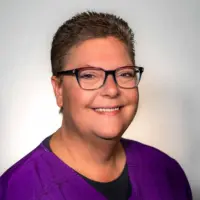
Heather Davis
Nurse Manager

Jacob May
Director of Operations

Samantha Owens
Director of Human Resources

Jaimee Kimble
Director Of Business Development
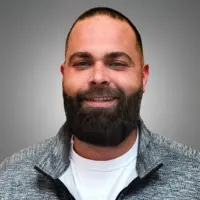
Phil Rappant
Director of Professional Relations

Courtney Feight, BS
Admissions, Case management
Accreditations

The Substance Abuse and Mental Health Services Administration (SAMHSA) is a branch of the U.S. Department of Health and Human Services. Established in 1992 by congress, SAMHSA's mission is to reduce the impact of substance abuse and mental illness on American's communities.
SAMHSA Listed: Yes
Contact Information
47 Chambers Circle Road
Walker, WV 26180











